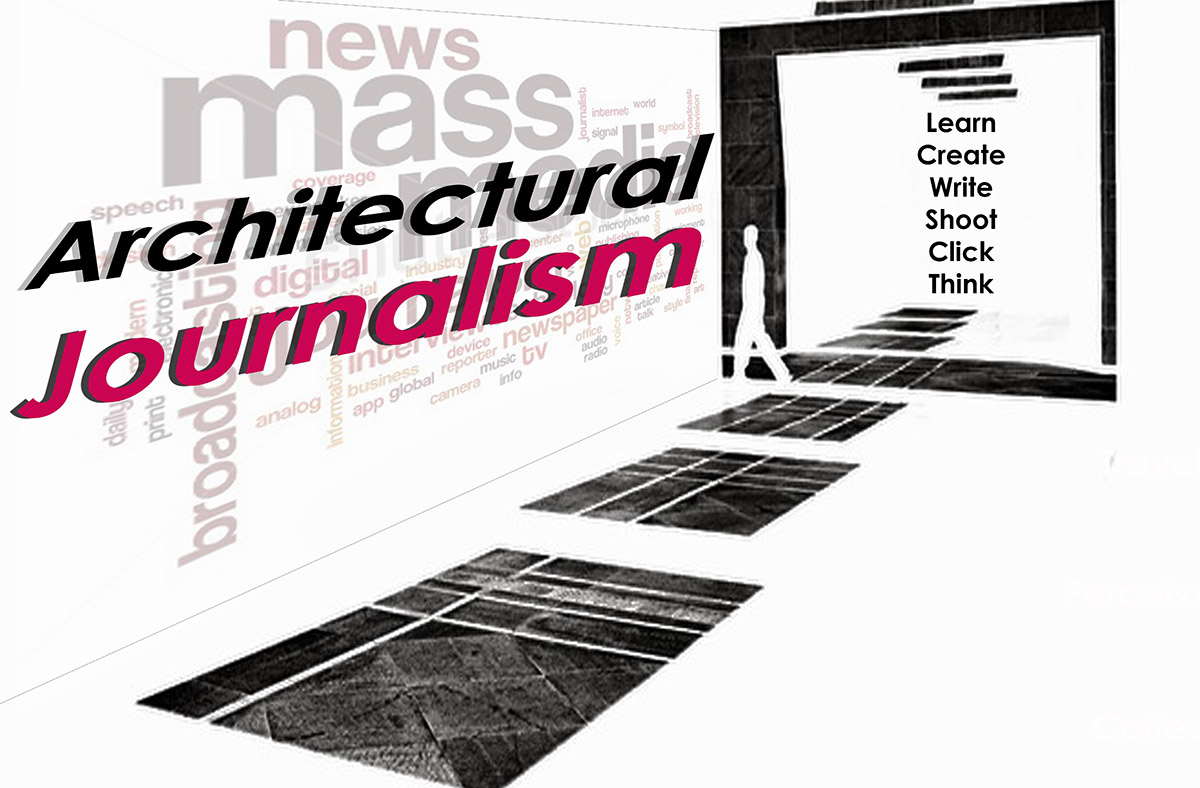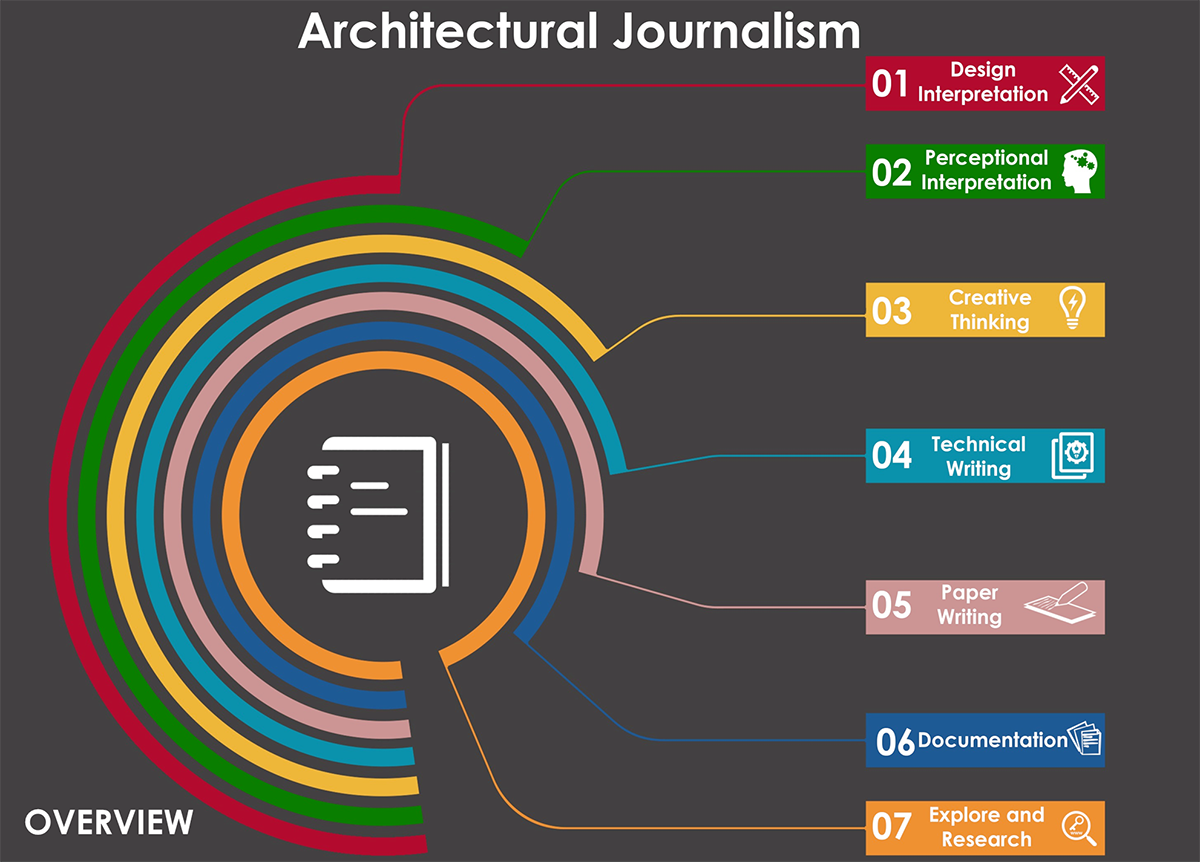Submitted by Pappal Suneja
Architectural Journalism Competition Series, India
India Architecture News - Dec 22, 2017 - 11:55 21933 views

Architectural Journalism Competition Series is an Initiative to spread awareness about this subject and sow the seeds of Inspiration to take up it as a profession in a developing nation like India where it still needs to explore its wings to the fullest potential.
There shall be a total of 10 Series conducted at a regular interval of one month each. Best Publications from all the Series shall be published in the form of a customized book with ISBN No.
Themes for Series 1 to 10 are as follows:
Series 1: "Share an Experience with any Architectural masterpiece"
Monuments and Masterpieces exist everywhere; only their stories remain untold and thus, unheard. Even in India, there are many great works that are being built. It is only through architectural journalism that people will understand architecture in a more defined manner. In fact, through this technique, people would get to know about the thought process of the architect of the work, his visualizations, the design considerations, the mechanisms used, the reason for that particular masterpiece being distinguished and most importantly, the architect’s point of view on the creation.
Series 2: "Discuss the relevance of Concept & Context with respect to any Architectural Masterpiece in India or Abroad"
An architectural journalism piece caters to five features of any building: its feasibility, uniqueness, equity, accessibility and its vitality. Also, the concept and the context of the building are important as they go hand in hand. The concept could be anything that we get inspired by: something available in nature, or an already-being-used mechanism, or some bio-mimicry, which is further modified in terms of a building. It could be based upon the simple functions that the building is deemed to perform, or just inspired from a leaf or the petals of some flower, or even from the Fibonacci series of numbers which could inspire a mathematical model of tiling to construct a facade. There are enormous possibilities for conceiving a concept in terms of architecture.
Series 3: "Discuss the need for Architectural Journalism as a Serious Curriculum in Architectural Colleges of India"
Architectural journalism is also reflective. We can understand our mistakes and hence, learn not to repeat them in the future; and we can grasp the advantages and the positives so that they can be replicated ahead, keeping in mind the conceptual and contextual details. In fact, it can arouse the interest of the readers in architecture at another level, which would certainly boost this field beside publicizing architects. Especially in India, this is a not-so-much-trodden path in spite of its importance. The employment possibilities that it can create are still to be hit upon. The numerous languages and cultures can bring about multivariate perspectives in architecture. After having watched through different colors of cultures, understanding what is best for who becomes a lot easier for any architect. And when we have such a large base of architectural journalism in the foreign lands, why not have it in India?

Series 4: "Discuss the relevance of Travel in Architecture"
To travel is to make a journey; but what would a journey be, if the traveler doesn’t grow through it? Wouldn’t that equal just moving from one place to the other, without really gathering a thing? It certainly would. And when we are talking about traveling to explore architecture, it becomes imperative that an architecture student must learn that traveling becomes analogous to growing in their world. So why it is necessary to travel if you are into architecture and how to make your travels count in the simplest of ways.
Series 5: "Discuss the Importance of Architectural Vocab"
Any profession, be it architecture considered in its hardcore sense, or any other that involves creative thinking, encompasses certain words/phrases that make expressing its nuances clearly. Such phrases coalesce to form the professional vocabulary entailing the jargons. While talking about architecture being clubbed with journalism, it becomes imperative that we talk about Architectural Vocabulary. Having chosen a field wherein the art of expression is necessary, budding architects must take it as a responsibility to get them familiar with architectural vocabulary. This would certainly help in making the client understand the proposal in an elaborative manner. An expression can certainly be molded according to the understanding of the end-user.
Series 6: "Discuss 'Why Architectural Research is Important"
If one understands the sensitivity of the subject and leads oneself to the Research part that shall come with the maturity to start up analysis, documentation, exploration, study, and gaps in architectural research interventions. One could join research organizations related to architecture, like CSIR, CBRI, Research Cell at – CCA, CEPT, and building centers like LBC, Trivandrum and Anangpur Building Center, Faridabad.
Series 7: "Discuss 'Why Architects must write"
Although this profession is gathering some limelight due to the few gigantic names allied with it, yet this does not seem enough. There is just not adequate familiarity with this field among the younger, budding, future architects. There hasn’t been much about how to begin with, it in the first place, let alone making it a fruitful journey. This can be attributed to the much-believed fact that not many architects write. Also, to be published at some reputed place needs mettle. Maybe this is the reason why some of them even hesitate to start. However, knowing a systematic journey would be helpful. Only then, they could begin, explore and establish themselves in that arena.
Series 8: "Discuss the Aesthetic Root Diversity in India"
We find aesthetic root diversity in India, which could be explored to a massive extent through architectural journalism. Take for instance any religious place wherein the idol is placed on a higher plinth for reasons such as portraying a supreme power higher than us. Meanwhile, if there are certain places where the same is structured at a lower plinth; one could be curious and explore it through architectural journalism. Also, when an architect conceives a design that further has turned into a building, why not let it be known to the public?
Series 9: "Discuss Creative Writing in Architecture"
Creative writing is a means of expressing one’s thoughts and ideas in a liberal manner, free from any restrictions or technical jurisdictions. It allows an informal interaction between the writer and the reader, leading to a seamless conveyance of information and ideas. This enables the reader to develop an easy understanding of what is written, as no rigid protocols are followed.
Nonetheless, certain guidelines need to be followed. Creative writing, as a means of Architectural Journalism, must acknowledge certain aspects of the field. The presence of an architectural expression is necessary, to begin with. There must be a clear understanding of the subject material, to make the reader grasp it well.
Series 10: "Discuss the Rational Thinking in Architecture"
Rational thinking in art and architecture refers to following a holistic approach that can incorporate the power of ‘now’ in our architectural endeavors. For taking any rational decision, it is important that all the parameters, which might get affected, be keenly observed. In architecture as well, rationalism comes into play when we need to consider diverse parameters that affect our point of consideration in one way or the other; doing so shall not be possible without architectural journalism. For example, when we have only a small portion exposed, we will not be able to figure out the complete message that it portrays, unless we have all the broader parameters analyzed through some medium like architectural journalism.
Jurors Panel
Prof Krishna Rao Jaisim: Principal Architect Jaisim-Fountainhead
Dr. Gauri N.Shiurkar: Principal, McGAN'S Ooty School of Architecture
Ar. Surinder Bahga, Chairperson B&C IIA Punjab and Principal Architect, Saakar Foundation
Prof (Ar) SS Behl: Dean, Guru Nanak Dev. University, Amritsar
Ar. Pappal Suneja, Freelance Architectural Journalist, India
Ar. Sangeet Sharma, Practicing Architect &Author Chandigarh
Renu Raja Ram: Editor, Window and Facade Magazine, New Delhi
Ar. Sarbjit Bahga, Chief Architect Bahga Design Studio, Chandigarh
Winning Prizes for the competition are:
For each series, Winning Entry shall be awarded a Set of Three Books autographed by the respective Architects Worth 3500 INR to both Student and Professional Category.
1. Book: 'Architectural Musings: I Do’ by Prof. Krishna Rao Jaisim
2. Fictional Novel: 'Castles in the Air: Misadventures of a Profession' by Ar. Sangeet Sharma.
3. Book: 'Exploration of Architectural Journalism in India' by Ar. Pappal Suneja.
Besides, this all the entrants shall be sent e-Certificate attested by all the jurors and all the authors whose articles shall be published in the form of a customized book with ISBN No. shall be sent a copy of the book (Covering Best Articles from all 10 Series, likely to be published in May 2018).
For more Information, visit the website for the competition.
All Images © Pappal Suneja
